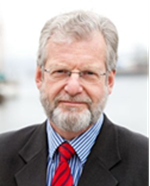« NORTHBOUND – THE NORTH SEA AND THE ARCTIC OCEAN: THREATS AND SOLUTIONS »
- Home
- Intervenants-FDM
- Live Scientific Seminar « NORTHBOUND – THE NORTH SEA AND THE ARCTIC OCEAN: THREATS AND SOLUTIONS »
Live Youtube
In the context of the exhibition “Northbound, Connected by the Sea” proposed by the Museum Kunst der Westküste (MKdW) at the Oceanographic Museum, with the support of Prof. Dr. mult. h.c. Frederik Paulsen, founder of the MKdW, the two institutions will devote a seminar to the North Sea and the Arctic Ocean, in the presence of HSH. Prince Albert II of Monaco, on May 11, 2022 from 2:30 pm to 6:00 pm.
Summaries of the seminar The North Sea and The Arctic Ocean: Threats and solutions. A seminar for a sustainable ocean.
Speaker's biographies
Click on theto discover the biography of the speakers.
Prof. Dr. Peter Herzig,
former Executive Director, GEOMAR Helmholtz Centre for Ocean Research Kiel (Germany)
Professor Peter Herzig is an economic geologist and marine scientist by training and has been the Executive Director of GEOMAR Helmholtz Centre for Ocean Research in Kiel, Germany, since 2004 before he retired in 2020. He also has served as Maritime Coordinator of the Federal State of Schleswig-Holstein and was appointed Maritime Ambassador of the European Union. Professor Herzig is a member of numerous national and international scientific boards and committees and was Senator of the German Science Foundation and Vice President of the Helmholtz Association of German Research Centers. He is a member of the German National Academy of Science and Engineering and received the prestigious German Leibniz Research Award in 2000. In 2010 Professor Herzig received the Order of Merit of the Federal State of Schleswig-Holstein, in 2015 he was awarded the First Class Order of Merit of the Federal Republic of Germany by the German President, and in 2021 he was appointed Knight of the Order of Saint Charles by HSH Prince Albert II of Monaco. Professor Herzig now is a consultant to various institutions and organizations as well as to the maritime industry, and as such a Senior Advisor to the Oceanographic Institute, Prince Albert I of Monaco Foundation.
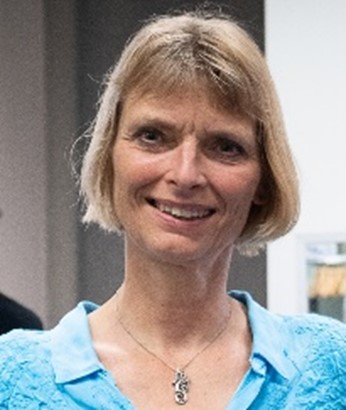
Prof. Dr. Tinka Murk,
Professor at Wageningen University (The Netherlands)
Tinka Murk is full professor Marine Animal Ecology (MAE) at Wageningen University and European registered Toxicologist. In 2002 she was awarded a NWO-ASPASIA grant for excellent female scientists and became associate professor. In 2008 Tinka was appointed personal professor Environmental Toxicology and since 2015 she is full professor and chair holder MAE. In 2012 she developed a vision for the Wageningen UR investment program called TripleP@Sea and subsequently led this innovation program (2012-2015). Tinka also led the Dutch team within the US C-IMAGE consortium studying unexpected interaction of oil spill dispersants in realistic sea water and the consequences of this for ecosystem services (8 years project, following the Deep Water Horizon oil disaster in the Gulf of Mexico). She chairs the Scientific advisory boards of the Dutch North Sea foundation (2015-present) and of the REEFolution foundation (2016-present) that aims to restore and create reefs together with local communities to improve and sustain biodiversity, thereby contributing to the awareness of the importance of sustaining natural resources and creating opportunities to improve livelihood conditions. Tinka participated twice in a diving expedition to remove lost fishing gear from North Sea ship wrecks where she also studied how marine animals use these artificial reef structures and sampled fish eDNA in water around the wrecks. Tinka has published over 250 scientific papers and book chapters and supervised more than 50 PhD students. In addition she actively shares the beauty and relevance of science with non-experts as well.
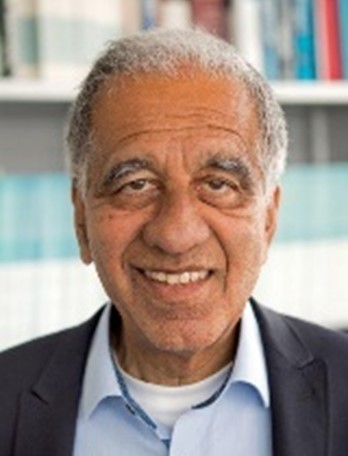
Prof. Dr. Mojib Latif,
Senior Professor at GEOMAR, President of the German Association of the Club of Rome (Germany)
Mojib Latif was born in Hamburg (Germany) in 1954. After studying Meteorology, he received his Ph.D. in 1987 and his habilitation in 1989, both in Oceanography and from the University of Hamburg. From 1983 to 2002, he worked at the Max Planck Institute for Meteorology in Hamburg. Since 2003 (2020), Mojib Latif is a Full (Senior) Professor at Kiel University and works at the GEOMAR Helmholtz Centre for Ocean Research Kiel. The main topics of his research are natural climate variability and anthropogenic climate change. Mojib Latif is President of the Academy of Sciences in Hamburg and of the German Association CLUB OF ROME. He received several prizes and honors: in 2000, the Sverdrup Gold Medal of the American Meteorological Society; in 2015, the German Environmental Award of the German Federal Environmental Foundation; in 2016, the Order of Merit of the Federal State of Schleswig-Holstein; in 2019, the Alfred Wegener Medal of the German Meteorological Society.
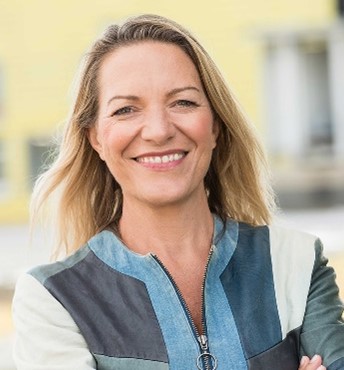
Prof. Dr. Antje Boetius,
Director, Alfred Wegener Institute, Helmholtz Centre for Polar and Marine research, Germany
Antje Boetius is a polar and deep-sea researcher and director of the Alfred-Wegener-Institute, Helmholtz Centre for Polar and Marine Research. She is Professor of Geomicrobiology and Head of the Joint Research Group for Deep-Sea Ecology and Technology at the Max Planck Institute for Marine Microbiology, and she is involved in the MARUM Cluster of Excellence at the University of Bremen. Boetius has participated in 50 expeditions on international research vessels. Her recent research focuses on the effects of climate change on the Arctic Ocean and the biodiversity of the deep sea, including the functions of microbial life. She is the recipient of the DFG’s Gottfried-Wilhelm-Leibniz Prize, the German Environmental Award 2018 and was awarded the Federal Cross of Merit in 2019 amongst many other merits. She is member of the National Academy of Sciences Leopoldina and other national and international academies. For her talent in communicating the importance of research to society, she has received several awards, including the Communicator Prize of the German Research Foundation (DFG). She collaborates with the arts, theater, film and music with a focus on the relationship between humanity and nature.
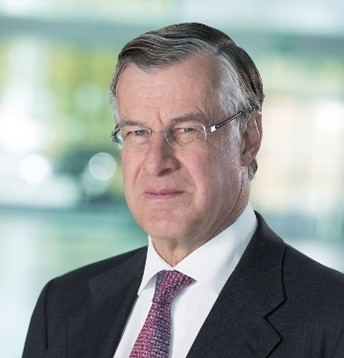
Prof. Dr. h.c. mult. Frederik Paulsen,
Founder of the Museum Kunst der Westküste, Germany
Dr Frederik Paulsen is a renowned businessman, academic, philanthropist and explorer. Dr Paulsen’s father and stepmother founded Ferring Pharmaceuticals in 1950, and during his period as Chairman, the company delivered impressive growth and expanded into new markets, gaining a presence in almost 60 countries. In addition to Ferring, his other business interests are in the fields of life sciences, real estate, publishing and the beverages industry. He also devotes time to his passions: polar exploration and climate change science. As one of the few people to have stood on all eight of the Earth’s poles, Dr Paulsen has a deep historical and scientific interest in polar exploration and is a founding member of the Swiss Polar Institute. He also plans to maintain his support for a diverse range of philanthropic activities in culture, science and education, ranging from Europe and the US to the remote island of South Georgia and the Kingdom of Bhutan. He is the recipient of numerous awards and national and international honours, including Officer of the Most Excellent Order of the British Empire (OBE), Bundesverdienstkreuz in Germany and Officier de la Légion d’Honneur in France. Most recently, he was awarded Officer of the Ordre de Grimaldi by Albert II, Prince of Monaco. Frederik Paulsen was born in 1950 in Sweden, and remains a Swedish national though now lives in Lausanne, Switzerland. He studied chemistry at the Christian Albrechts University in Kiel, Germany, and Business Administration at Lund University, Sweden, and holds a Ph.D from the Ecole des Hautes Etudes en Sciences Sociales, Paris, France.
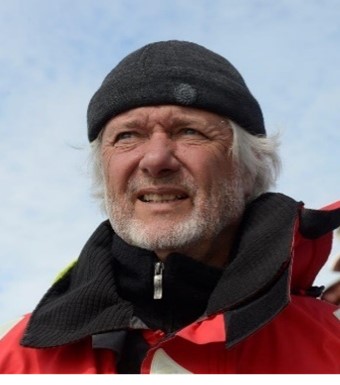
Mr. Arved Fuchs,
Explorer, Expedition leader at Arved Fuchs Expeditionen, Writer, Journalist, Film-maker, Germany
Arved Fuchs, born in 1953, succumbed at a very early age to the fascination of polar research. After his schooling, he completed an apprenticeship with the merchant navy. His goal was to obtain the necessary know-how for his future undertakings. His studies in the field of marine engineering at the FH College in Flensburg followed and eventually he became self-employed. Since 1977, his expeditions have again and again taken him to the extreme Artic and Antarctic zones. In 1981 he sailed across the Atlantic, in 1983 he crossed Greenland with a dog-sled and in 1984 he undertook the first winter rounding of Cape Horn in a faltboat. In 1989 he was the first person to reach both the North and the South Poles on skis. His interests then turned to the area of water: He bought and reconstructed the old cutter « Dagmar Aaen“. Since then, he has been underway with this ship most of the time and has covered over 300.000 sea miles, including the crossing of the Northwest and the Northeast Passages as well as expeditions to the Antarctic. For many years now during his expeditions, Arved Fuchs has observed and documented on the ever -progressing changes in climate. His expedition « Ocean Change » focusses mainly on the effects of climate change on the oceans as well as the consequences of overfishing and the littering of the seas. Since the summer of 2015, he has been underway with the « Dagmar Aaen“ on several stages of this expedition. On September 27th, 2019 he returned – for the time being – to Hamburg from the last stage after sailing 10,000 sea miles. He and his crew have documented on the changes of the ice situation on the western and eastern coasts of Greenland, have collected and recorded waste and have visited various Best Practice Projects on fossil-free energy production. Arved Fuchs has written 20 books. He was awarded the German Federal Cross of Merit in 2017 for his involvement in the protection of the environment and climate. In 2017 he received the Environmental Award from the Nature-Life Foundation for his life’s work and in 2019 he was awarded the Seadevcon-Maritime-Award. The University of Kiel honoured him with an Associate Chair of Excellency for his involvement in the preservation of the fragile polar ecological system. In order to obtain a wider awareness for climate change, Arved Fuchs organizes International « Climate Camps“ for young people. The camps offer these young people a vivid and direct opportunity of experiencing the effects of global warming.
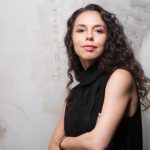
Mme Leila Ghandi,
a Great reporter, Documentary film director and Master of ceremonies of the Northbound seminar.
Monegasque television host, great reporter, director, producer, adventurer, speaker, followed by millions of viewers on television (2M, France 2) and an audience of nearly one million people on the Internet, Leila Ghandi is committed to the protection of the environment. She produces videos for TV and her digital platform for which she interviews heads of state. Her work as a documentary filmmaker has won international awards including the Anna Lindh Euro-Mediterranean Journalist Award. She is the author of the book “Chronicles of China” which won the US Agency for International Development Literary Award. Her photographs are exhibited around the world. As a lecturer, Leila has been invited to speak and moderate at high-level conferences, notably for United Nations agencies and the European Parliament. Leila has lived on every continent and speaks 5 languages. She is a graduate of Sciences Po Paris and the Harvard Women and Power Executive Program. Chevalier de l’Ordre des Arts et des Lettres, decorated at the Senate for the Trophy of Success for Women, named Woman of Excellence by Marseille European Capital of Culture, named Opinion Leader by a UN organization, laureate of the Who is Who International Women Leaders Award, chosen by L’Oréal Paris as “Femme d’Exception” for her international campaign, nominated at the Monaco Influencer Awards in the Philanthropy category for her commitment as a change maker, Leila is recognized internationally and has received numerous distinctions www.leilaghandi.com
Program of the seminar
14.15 – All participants seated in the conference room
14.30 – The seminar starts
Nature Uses Opportunity (3’ video By Dutch Maritime Productions)
Welcome words by Ms Leila Ghandi, Master of Ceremony
Opening speech by HSH Prince Albert II of Monaco
Introductory remarks by Prof. Dr. Peter Herzig, former Executive Director, GEOMAR Helmholtz Centre for Ocean Research Kiel, Germany
‘’ Biodiversity of the North Sea and the Arctic: Setting the Scene’’, by Prof. Dr. Tinka Murk, Professor at Wageningen University, the Netherlands
Video message from Mr. Boris Herrmann, Skipper of Team Malizia, Germany
‘’ How are the North Sea and the Arctic Ocean responding to regional climate change and what are the consequences for coastal communities ? ‘’, by Prof. Dr. Mojib Latif, Senior Professor at GEOMAR, President of the German Association of the Club of Rome, Germany
‘’ Can science – and exploration – help to find solutions to the climate change and the biodiversity problem ? ‘’. Dialogue. With Prof. Dr. Antje Boetius, Director, Alfred Wegener Institute, Helmholtz Centre for Polar and Marine Research, Germany, Mr. Arved Fuchs, Explorer, Writer, Journalist, Film-maker, Germany, Prof. Dr. h.c. mult. Frederik Paulsen, Sweden, Founder of the Museum Kunst der Westküste.
‘’ From the Museum Kunst der Westküste perspective, can art be part of the solution for a better known, loved and protected Ocean?’’, by Prof. Dr. Ulrike Wolff-Thomsen, Director of the Museum Kunst der Westküste, Germany
Closing words, by Prof. Dr. Peter Herzig, former Executive Director, GEOMAR Helmholtz Centre for Ocean Research Kiel, Germany
18.00 – End of the seminar
« Verre de l’amitié » in the Salon d’Honneur
Introduction by Prof. Dr. Peter Herzig, former Executive Director, GEOMAR Helmholtz Centre for Ocean Research Kiel, Germany
The North Sea is a unique region of the Atlantic Ocean. It connects the UK, Norway, Denmark, Germany, the Netherlands, Belgium and France and thus is a truly northern European marginal sea. It is a one of busiest marine industry areas in the world but at the same time a major area for recreation and tourism. The extraordinary rich ecosystem of the North Sea and the nearby Arctic call for solutions in order to combine economic use and sustainable protection of the marine biodiversity…
On the other hand the North Sea is under extreme external pressure. Sea-level rise, overfishing, loss of biodiversity, acidification, decrease of oxygen, plastic and nutrient pollution as well as global warming are issues that are threatening not only the world oceans but also the North Sea in particular. Our seas and oceans are too warm, too high and too acid. They are overfished, they lack oxygen and in the future they may have more plastic than fish.
However, the North Sea is also a sea of solutions in order to find a solid balance between the maritime industry and the protection of the marine ecosystem. Wind farms without fishing activities tend to develop into well protected hosts for rich marine ecosystems. Marine Protected Areas develop into marine natural parks with largely intact biodiversity. Fishing restrictions result in a recovery of fish stocks and associated biodiversity. New concepts of fish farming with free floating cages far off the coastline improve the ecological footprint of the aquaculture industry.
The North Sea is a sea of energy. Oil and gas have been the major sources of energy so far. However, large-scale off-shore wind farms, the potential of wave and tidal energy and new concepts of CO2-storage beneath the seafloor are currently explored. The off-shore oil and gas industry is beginning to turn into a truly blue industry leaving oil and gas behind.
Climate change and the connection of the North Sea to the Arctic has resulted in major shifts of biodiversity. Some fish stocks are moving north towards colder environments and are partly replaced by more southern species. Marine research is currently focusing on those changes in biodiversity which potentially can have a significant impact on marine live and the world food supply.
Marine Spatial Planning is underway in the North Sea in order to facilitate the needs of the various stakeholders in a sustainable way. Here, the border countries of the North Sea have similar ambitions and follow the same track.
Finally, the North Sea is known as a rough, unpredictable and dangerous sea by fisherman in particular. Hundreds of whale hunters have lost their lives in early times in the North Sea and the Arctic. And also today the North Sea remains to be a sea of challenges in many different respects.
Sea level rise is a major threat to coastal areas in the North Sea. An innovative project to build two dams in the English Channel between France and England as well as between Scotland and Norway is currently being discussed in order to protect 25 million people living in coastal communities in northern Europe who are affected by sea level rise.
On the first glance, the Mediterranean Sea and the North Sea do not appear to have much in common. However, best practice examples developed independently in both areas can potentially help to achieve a sustainable coexistence of use and protection of our seas and oceans – our common heritage.







